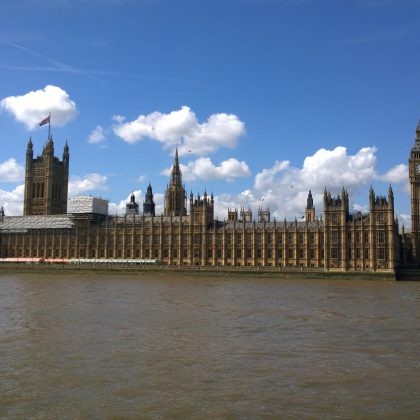Democratic curiosity in times of surveillance
This post by Jef Huysmans first appeared on the ejis.eu blog in December 2015.
It is based on his article from the inaugural issue of European Journal of International Security. Full article available here.
A 2013 study on mass surveillance requested by the European Parliament’s Committee on Civil Liberties, Justice and Home Affairs states that the key question following the Snowden revelations on US mass surveillance is: “What nature, scale and depth of surveillance can be tolerated in and between democracies?” This is clearly an important political question. Not too many will contest that the implications of surveillance for democracy are one of the important political challenges of our times.
Asking how much surveillance democracy can tolerate is not the only question we need to ask today, however. Implicitly running through the question is the assumption that if there is sufficient political will democratic institutions can both define what level of surveillance is compatible with democracy and constrain surveillance to this effect. Yet, what if institutional democratic repertoires cannot or can only to a limited extent bear upon surveillance because the latter is organised and practiced in ways that to a large degree escape control and authorisation practices of key democratic institutions? If the latter is the case then we need to ask another set of questions too. What can democracy mean in relation to surveillance situations upon which institutional democratic repertoires have only limited grip? What mode of enquiry can be developed that researches the interstices between democracy and surveillance without limiting democratic practice to familiar institutional repertoires?
I proposed the notion of ‘democratic curiosity’ as a tool for capturing this challenge and start to respond to it. Curiosity is a mode of analysis that brings into analytical play the power and significance for (re)shaping situations of surveillance of that which is considered to be powerless. In doing so it disrupts institutional self-representations of surveillance structures and practices and creates space for that which is mostly kept of the political surveillance agendas. In that sense, curiosity is in itself a democratising mode of enquiry. However, there is more to the democratic qualification of curiosity than this. The democratic qualifier adds two elements. First, it conceptualises surveillance as a social situation shaped and transformed by a multiplicity of practices that are held in immanent relations. This may seem common sense but it is not. It implies something quite specific; it challenges dialectic modes of analysis that take surveillance as a confrontation between a surveillance system that imposes a particular governmental logic and the mobilisation of those trying to resist or escape it. Democratic curiosity retains power as being multiple, immanent and diffuse as long as possible; that is, until there is clear evidence that in a particular situation coordination work has transformed a multiplicity of relations indeed into a dialectic antagonism between two groups — the surveillers and the surveilled. Secondly, the democratic modality implies that non-dialectic social situations can become political without having to transform into dialectics of domination and resistance. Little nothings are political in so far they enact uncoordinated disputes in which multiple disagreements about conceptions of rights, autonomy, and dispositions of acceptability are brought to bear upon and shape what surveillance is and can be.
Jef Huysmans
Professor of International Politics, Queen Mary University of London





